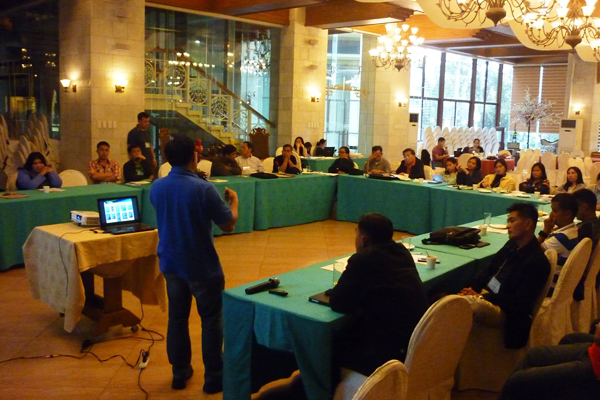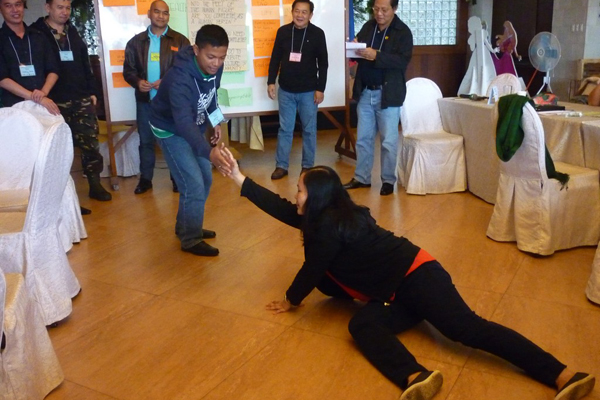Regional Training of Trainers and Institutionalization Workshop held for Northern Luzon

HSF
The five-day activity was undertaken under the project “Community-based Dialogue Sessions on Human Rights Promotion and Protection between the Armed Forces of the Philippines and Philippine National Police, and Civil Society Organizations and Local Communities.” It is a partnership among the Armed Forces of the Philippines (AFP) Human Rights Office (HRO) and the Deputy Chief of Staff for Civil Military Operations (J7), Philippine National Police (PNP) Human Rights Affairs Office (HRAO), Ninoy and Cory Aquino Foundation (NCAF), Philippine Alliance of Human Rights Advocates (PAHRA), Commission on Human Rights (CHR) and the Alternative Law Groups (ALG), with support from the Hanns Seidel Foundation/Germany (HSF).
The training was attended by thirty-eight (38) participants representing the AFP, PNP, CSOs and CHR as well as the partner institutions’ key representatives, who form the Project Steering Committee (PSC) and part of the training team. In line with the guidelines set by the PSC, AFP and PNP participants from the concerned regions shall comprise of trainers and educators from their respective training “arms,” i.e., Regional Special Training Unit (RSTU), Regional Human Resource and Doctrine Development (RHRDD) office, and Regional Training Center (RTCs) on the part of the PNP, and Civil Military Operations (CMO) officer, executive officer and/or group commander/deputy commander for the AFP. The CHR was represented by Special Investigators and Information Officers while CSOs include local project coordinators and community organizers.

HSF
The 5-day ToT and Institutionalization Workshop was well appreciated by the participants which gave them a good opportunity to interact with each other (security sector and civilians), and discuss and/or address current issues and concerns toward promoting and protecting human rights based on mutual respect, openness and cooperation. They underscored the value of bringing together a multi-sector audience and adopting a dialogue process to level-off areas of concern on human rights especially at the local level as well as the conduct of joint education and training sessions towards a better understanding of human rights concepts and principles vis-à-vis its application to specific situations on the ground, and having a broader perspective on where the participants are coming from through the sharing of experiences.
The 5-day multi-sectoral human rights training program covered 11 modular sessions, including Demonstration Teaching and Planning Workshop towards institutionalization.

HSF
The “Demonstration Teaching” session was acknowledged to be an important part of the ToT in enhancing their knowledge on human rights, as well as in applying the concepts and principles in the performance of their duty as police or military officers and as human rights defenders. The participants from Northern Luzon gave an impressive performance by adapting “popular education” techniques which were innovative, informative, interesting and highly participatory. They made use of the Multi-sectoral Training Handbook, a copy of which were distributed to each of the participants, in preparing for their demo sessions.
Moreover, the Institutionalization and Planning Workshop was a key element to sustain the community-based dialogues especially at the local level. Collaborative efforts were identified and discussed for implementation by the participants per region. A select group of participants from the four (4) ToTs and Institutionalization Workshops held this year will convene for a 3-day Trainers Skills Upgrading and Sharing Session which will be in Manila on November 2016.
